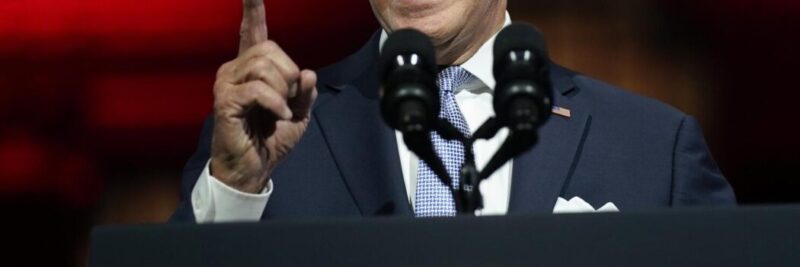Radio Station Comments On WH Request
Nearly a week after his less-than-stellar debate performance, President Joe Biden conducted two highly anticipated phone interviews with radio stations in Philadelphia and Milwaukee. These interviews were specifically aimed at appealing to Black voters and addressing concerns about Biden's ability to speak coherently in unscripted settings.
However, neither interview achieved its intended goal. Both segments were pre-recorded, and it was later revealed that the Biden campaign had submitted questions to the hosts in advance. This revelation raised questions about the authenticity of the interviews and further fueled doubts about Biden's capacity to engage in spontaneous conversation.
In Philadelphia, WURD's Andrea Lawful-Sanders hosted one of the interviews. However, following the fallout from the pre-submitted questions, WURD parted ways with Lawful-Sanders, stating, "WURD Radio is not a mouthpiece for the Biden or any other Administration."
Meanwhile, Civic Media, which hosted the Milwaukee interview with Earl Ingram, initially stood by their host. However, they later admitted to agreeing with the Biden campaign's request to edit two parts of the interview before it aired. Civic Media stated that this decision did not meet their "journalistic interview standards."
Here are the details of the edits requested by the Biden campaign:
- At time 5:20, the removal of Biden’s claim, "I have more Blacks in my administration than any other president, all other presidents combined, and in major positions, cabinet positions."
- At time 14:15, the removal of a reference to Donald Trump's call for the death penalty for the Central Park Five, where Biden said, "I don’t know if they even call for their hanging or not, but he–but they said [...] convicted of murder."
Civic Media acknowledged the edits, explaining that the production team initially viewed them as non-substantive. Despite the controversy, the station reaffirmed its support for Ingram.
For President Joe Biden, however, the situation is more complex. The debate performance and the subsequent revelation about the scripted and edited interviews have significantly impacted his support. What was intended to reassure nervous supporters has backfired, casting further doubt on his candidacy.
The controversy has sparked discussions about journalistic integrity and the transparency of political campaigns. It highlights the delicate balance between managing a candidate's public image and maintaining authenticity in their interactions with the media and the public.


